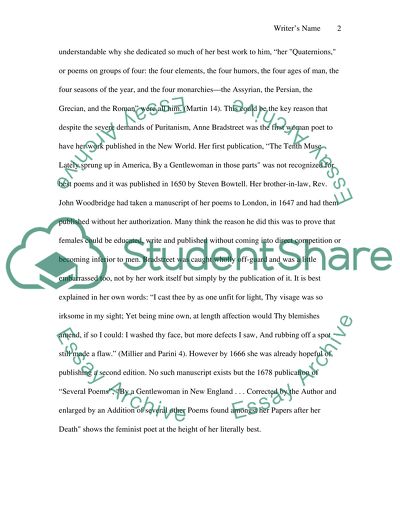Cite this document
(“Anne Bradstreet Essay Example | Topics and Well Written Essays - 2250 words”, n.d.)
Retrieved from https://studentshare.org/miscellaneous/1531660-anne-bradstreet
Retrieved from https://studentshare.org/miscellaneous/1531660-anne-bradstreet
(Anne Bradstreet Essay Example | Topics and Well Written Essays - 2250 Words)
https://studentshare.org/miscellaneous/1531660-anne-bradstreet.
https://studentshare.org/miscellaneous/1531660-anne-bradstreet.
“Anne Bradstreet Essay Example | Topics and Well Written Essays - 2250 Words”, n.d. https://studentshare.org/miscellaneous/1531660-anne-bradstreet.


